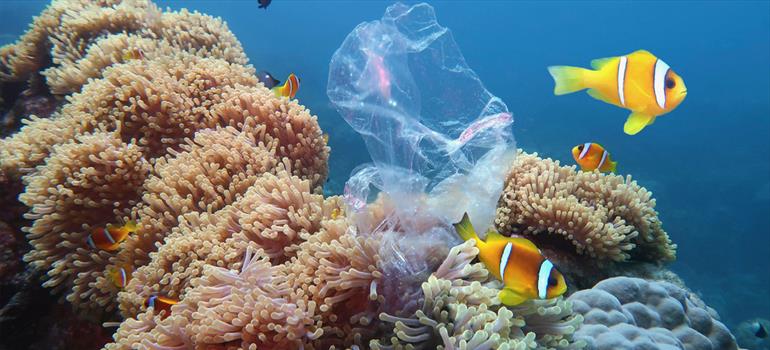[itemWebWizName]
Qty: [itemQuantity]

Doing our homework in the war on plastic
Plastic is a pretty hot topic right now – specifically the single use plastics that are pouring into our landfills and our oceans at ever-increasing rates. Dental professionals have a responsibility to consider the environmental impact of the items they use daily in practice – but since they rely heavily on disposable items to ensure optimal hygiene for every patient, it’s more than a little overwhelming to try and imagine the clinical environment without them.
Of course, nobody is suggesting that dentists and other clinicians should go back to the good old days when virtually everything went in the autoclave. But as with the general population, dental practices recognize that they can make some simple changes, such as making eco friendly choices on items like hand wash and disinfectant, switching to reusable bibs and towels, striving for energy efficiency in their premises, and even going paperless.
In addition, the next generation of biodegradable and compostable plastics present some interesting opportunities for dentists keen to retain the benefits of disposables without sending piles of plastic to landfill each year – but this technology is still very much in its infancy, and it’s not as straightforward a swap as you might think.
Bioplastics are made using renewable feedstocks rather than being derived directly from oil. While this is a much greener source than petrochemicals, the manufacture of bioplastic from crops is not carbon neutral.
In addition, the perception of words like ‘biodegradable’ and ‘compostable’ may be somewhat misleading when applied to bioplastics, giving people the impression that these items will simply disappear after they’re thrown out. The reality is that most biodegradable plastic (with the exception of starch-based films) won’t simply rot and disappear the way a piece of paper would – at best, this process takes months or even years, and at worst it may required specialist processing for it to happen at all. Without the widespread availability of specialised recycling or composting facilities for bioplastics, many are still unfortunately destined for landfill.
Bioplastics can be used in the production of recyclable plastic like PET, or biodegradable polymers like PLA – both great technologies with the potential to reduce waste, but only if the infrastructure is there to back it up and only if it’s made crystal clear to customers which product is which, and how to dispose of it properly.
At Denka, we recognise that many of our customers are becoming increasingly concerned about the environmental impact of their businesses. We’re working hard to learn as much as we can about viable alternatives to single use plastic with a view to offering greener options to our customers that won’t compromise on performance or value. In the meantime, we’d love to get your views on single use versus reusable, product innovations you’ve spotted on your travels and anything you’d like to see us stocking in a greener future. Together, we can make a change for good!